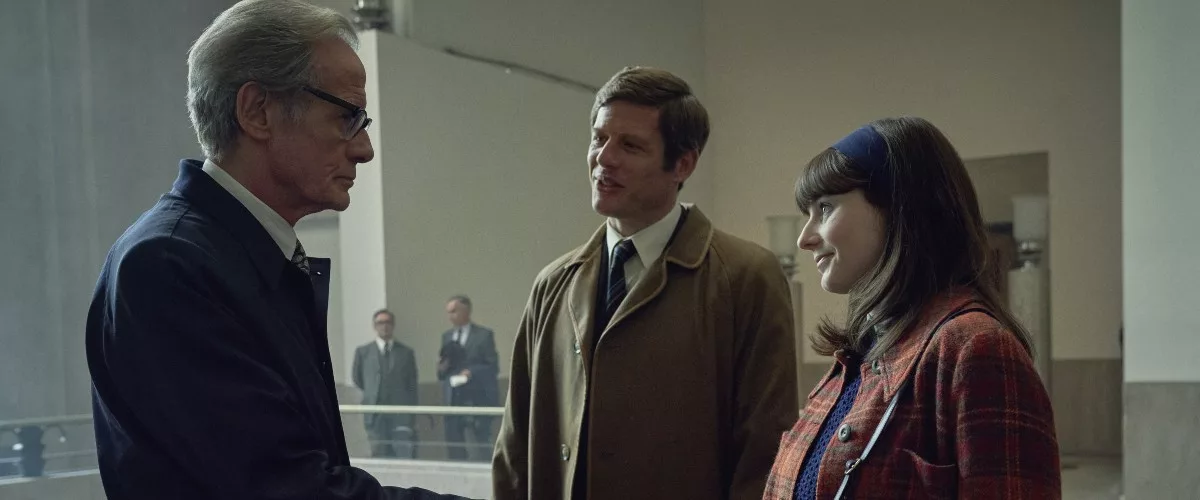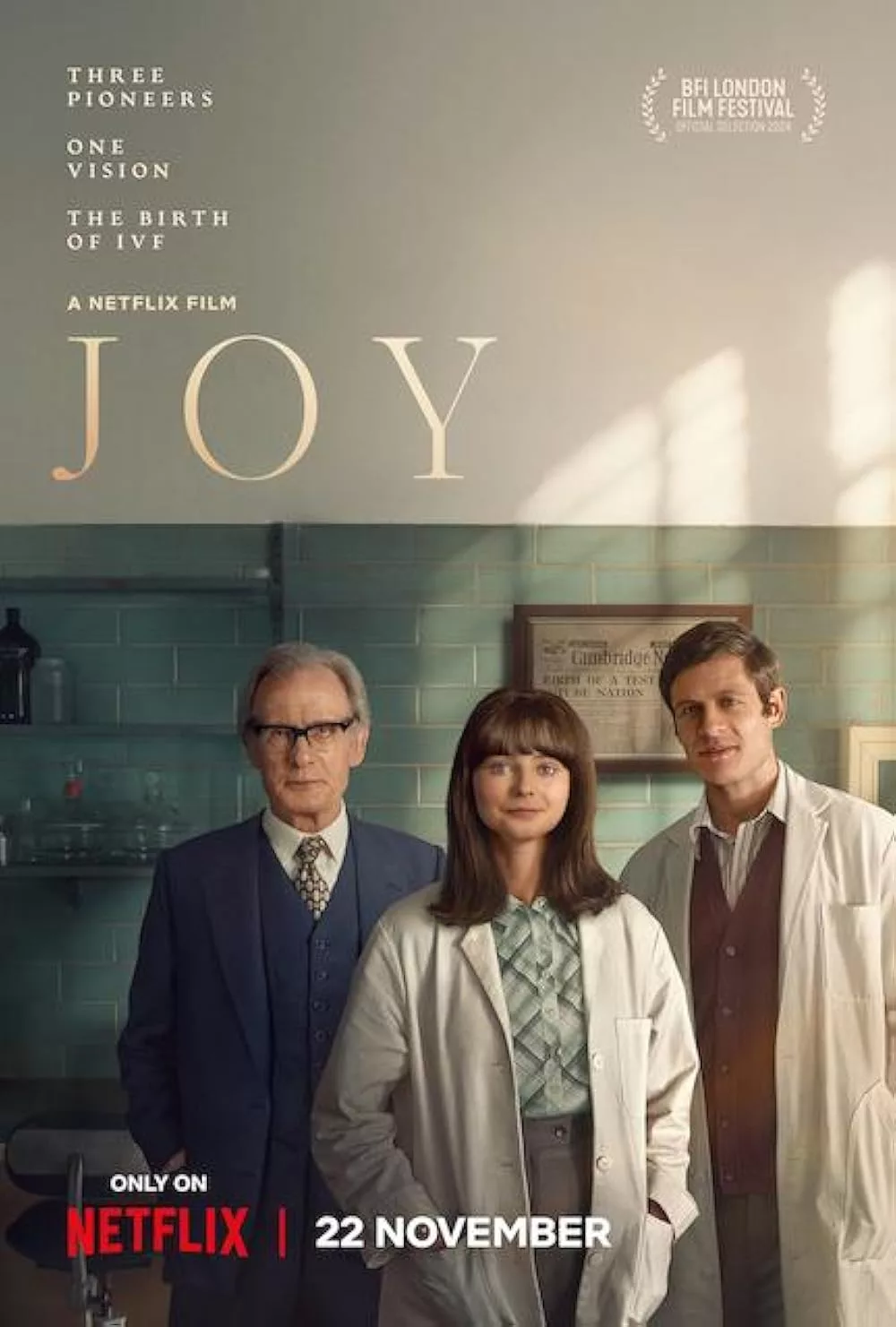Sometimes we just need a nice, cozy movie featuring a heartwarming true story and actors with British accents. And if Bill Nighy is one of them, well, that’s just a bonus. “Joy” is based on the three intrepid researchers who pioneered in vitro fertilization or IVF treatments, leading to the first baby born from an egg fertilized in a lab. Her name is Louise Brown, and she was born on July 25, 1978, after ten years of research and many failures and setbacks along the way.
The three researchers are biologist Robert Edwards (James Norton), obstetrician and surgeon Patrick Steptoe (Bill Nighy), and lab manager Jean Purdy (Thomasin McKenzie), trained as a nurse but eventually in the brand-new specialty of clinical embryologist. They had almost no support from the medical establishment. “How many people will this help?” a skeptical Medical Research Council committee member asks Edwards, who has come to ask for research money. But the committee in charge of funding medical research cannot imagine that this would be of importance. They think the problem of overpopulation makes it unnecessary to work on research to make even more babies. They explain that they are looking for something “exciting for science as a whole” and infertility treatments do not qualify.
From the public, they faced protests. Edwards did his best to talk to the press, responding to claims that what he was doing was unnatural (so are spectacles and false teeth, he would patiently reply), even that he was a kind of Dr. Frankenstein. He participated in a televised debate with Nobel Prize winner James Watson, one of the team that discovered the molecular structure of DNA. Watson says he is never opposed to advances in science but is concerned that this kind of interference with combining eggs and sperm outside the human body might result in “abnormalities.” “I come from a generation of scientists born under the shadow of Mengele,” Watson says. “I’m concerned we are stumbling into a situation where the work we do might lead to similar abhorrence…You’re a scientist seemingly engaged in the consequences of your work.” Edwards tries to explain the calculated risk/reward ratio, but the studio audience is not persuaded.
Purdy’s mother (Joanna Scanlan) refuses to speak to her, and their disapproving vicar urges her to admit her mistakes and let God back into her heart.
There are a lot of test tubes and microscopes and some very scary long needles in this movie, and some medical jargon. But there is enough focus on the humans to keep us connected, not just to the trio of researchers but also to the women who agree to be test subjects, willing to go through invasive and painful procedures with no idea of whether they might get pregnant. If they do get pregnant, there is no guarantee that they will carry to term. But they do it, partly because they are desperate to become mothers and partly because whether that happens or not, they want to be a part of something that could help other women. Edwards prefers to stay in the lab and look through the microscope, but Purdy gets to know every member of the Ovum Club, as the initial group of test subjects call themselves.
The film has an engagingly understated tone in look and performances, very stiff upper lip and carry on British. The science and technology may be ultra-modern, but the look of the homes and workplace could be pre-WWII. The soundtrack’s needle-drops of the era’s pop songs are a sharp and occasionally distracting contrast to the musty timelessness of the setting.
The warmth and respect shared by Edwards, Purdy, and Steptoe is evident from the first words in the film, with Edwards insisting that Purdy be credited for her contribution. (In reality, despite Edwards’ continued efforts, her role was overlooked for decades. By the time Edwards was awarded the Nobel Prize, Purdy and Steptoe had died and were thus not eligible. Her name was not added to the commemorative plaque until 2015.) We get very little information about the two men outside of the lab. We learn more about Purdy and her own reasons for dedicating herself to the project, but it’s not clear whether her storyline in the film is based on facts or dramatic license used to amplify the stakes. But McKenzie, always terrific, is outstanding here as the heart of the project and the film. The second-best part of the end credits is the photos of the real trio. The best part is learning that their work has resulted in 12 million much-wanted new babies.
On Netflix tomorrow, November 22.




















